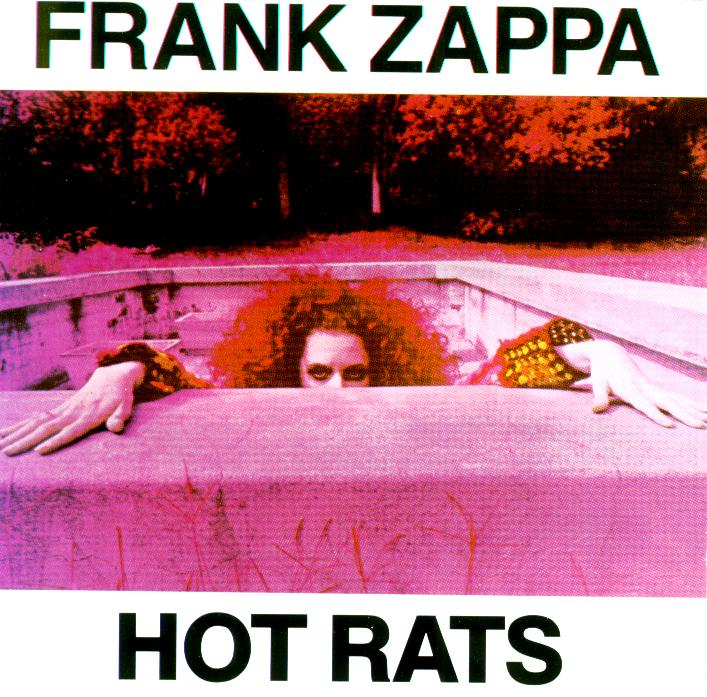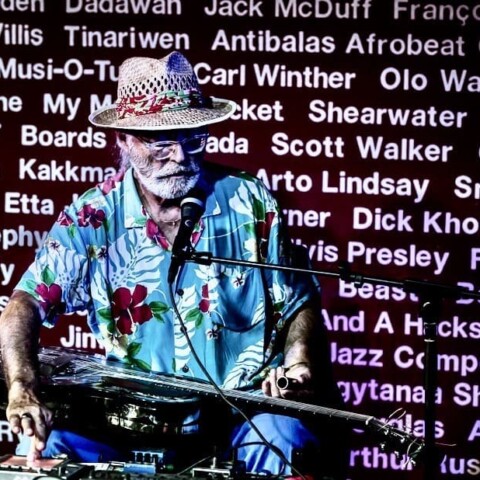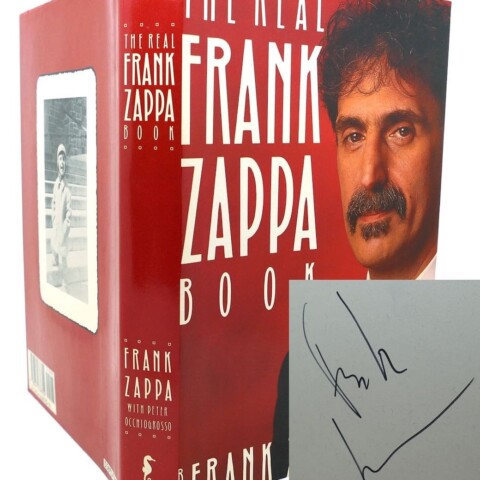With Universal reissuing remastered versions of Frank Zappa’s enormous catalogue, Gary Steel takes up the challenge of reviewing all of FZ’s genius album creations, one by one, and giving them a unique ‘Zappa Rating’. Today’s selection: Weasels Ripped My Flesh.
Frank Zappa – Weasels Ripped My Flesh (Zappa Records/Universal) #10

Both albums, despite their odds and sods description, are amongst Zappa’s best, and my favourite of the two is Weasels Ripped My Flesh, which acts as a remarkable showcase of the incredible breadth of the work undertaken in the last few years of the ‘60s, encompassing the zaniest, most surreal live moments along with some deft collage and tape manipulation. In addition to this, the album showed the first real stirrings of Zappa’s creative sequencing abilities, and it’s masterfully edited together in a way that never fails to surprise, and works as a whole from beginning to end. And not to forget the compositions themselves, or the stylistic breadth, which is enormous, but shows that anything goes in Zappa’s universe.

Sandwiched in between is a much more conventional piece: a bluesy version of Little Richard’s ‘Directly From My Heart To You’ reverberating with Sugarcane Harris’s electrifying violin.
 The next big surprise is ‘Toads Of The Short Forest’, which begins with a beautiful composed guitar theme that’s quite gorgeous, but suddenly (and shockingly) breaks off into a miasma of sheer tribal lunacy, a kind of avant-garde future jazz that keeps mutating, folding in on itself and throwing up new shapes. And then there’s the outrageous humour: during some particularly elephantine sax snorts, there’s ongoing commentary about who’s playing in which time, while the alto sax is blowing its nose!
The next big surprise is ‘Toads Of The Short Forest’, which begins with a beautiful composed guitar theme that’s quite gorgeous, but suddenly (and shockingly) breaks off into a miasma of sheer tribal lunacy, a kind of avant-garde future jazz that keeps mutating, folding in on itself and throwing up new shapes. And then there’s the outrageous humour: during some particularly elephantine sax snorts, there’s ongoing commentary about who’s playing in which time, while the alto sax is blowing its nose!Side 1 of the original vinyl ends with ‘Get A Little’, an excuse for a short, perfectly executed wah-wah guitar solo that, to these ears, is an example of ‘instant composition’ rather than guitar wank.
Then it’s time for the album’s best track, ‘The Eric Dolphy Memorial Barbecue’. As we know (don’t we?) Dolphy was a pioneering jazz artist whose Out To Lunch (1964) gave the genre a completely new skew. Without any histrionics, it brought a touch of chamber classical to the tradition. Unfortunately, any further strides were nixed when Dolphy died on tour, shortly after recording the legendary album. Zappa’s tribute is 6:53 of peculiar musical shapes that adds his own eccentricities. Based on vibraphone, spooky guitar, organ and of course horns, it’s a moody piece with strange metrics and musical configurations that ultimately raises the question of how boring and mundane most music is in comparison. The piece also somewhat anticipated the horn madness of jazz composer Anthony Braxton’s ‘70s work, and its funny, inventive improvisations were also used as a template by UK jazz-rock-prog group Henry Cow.
By contrast, ‘Dwarf Nebula Processional March & Dwarf Nebula’, at 2:12, isn’t much longer than its title, but every song on what was the second side of the vinyl is a cracker. Starting with what sounds like music from some surreal version of King Arthur’s court, it then piles on sped-up horns before breaking off into some crazy-ass tape manipulations.

After all this greatness, I could easily forgive Zappa if he let the album tail off at this point, but instead, he lands a few killer punches towards its conclusion.
‘Oh No’ features words put to one of the instrumental themes from Lumpy Gravy, an early indication of the brilliant way Zappa kept on reusing, revamping and rewriting previous tunes. The vocal, handled by former Mothers singer Ray Collins in a purposely over-smooth croon, is one of his incisive commentaries about hippy ideals: “Oh no/I don’t believe it/You say that you think you know/The meaning of love./You say love is all we need/You say/With your love you can change/All of the fools/All of the hate./I think you’re probably/Out to lunch.” This demolition of the foggy hippy notion of universal love (with its sneaky Dolphy album reference), as propagated by The Beatles’ ‘All You Need Is Love’, is a theme worthy of the album that wrote Zappa into rock lore, We’re Only In It For The Money. But it’s the way it segues into ‘The Orange County Lumber Truck’ that gives it wings: it’s a live piece with its refrain carried by the horn section, but which soon breaks out into a wild wah-wah guitar meltdown that ends way too soon.
The title track is simply 2:08 of atonal, live feedback noise, and if you’ve already jacked up the volume because you’re enjoying the album so much, that’s when its full, terrifying impact becomes apparent. In 2012, every other indie band uses distortion and feedback, and “noise” is a whole genre of so-called experimental music, but when this album came out in 1970, no-one was doing it, and even having a couple of minutes of pure meltdown noise at the end of your record was seen as sonic suicide.
Weasels Ripped My Flesh was, and is, the whole package: from the amusing yet slightly creepy cover illustration to its musical contents, it was an album that asked its audience to go for a wild ride, exposing them to rock music’s genuine potential to widen its scope. It demanded an acute ear, and an open mind, but the music and presentation was engaging enough to keep the listener involved. Few musicians or composers have come close in the decades that have passed to achieving music that even offered a snippet of the panorama offered by its probing lens.
And the sound? Like all the new Universal remasters, it sounds a little fatter and deeper than previous issues. This version is taken from the original analogue tapes, and mastered by Bob Ludwig, so it should be good. The Rykodisc version had a longer version of ‘Directly From My Heart To You’, but only total Zappa dweebs like this reviewer could care about such details. GARY STEEL
Zappa Rating
Music = 5/5
Sound = 3.5/5
Recommendation: There are sonic improvements here, but a serious fan would probably be happy with the Ryko version, which also boasts a slightly lengthened running time.
Music: 5/5
Sound: 3.5/5















